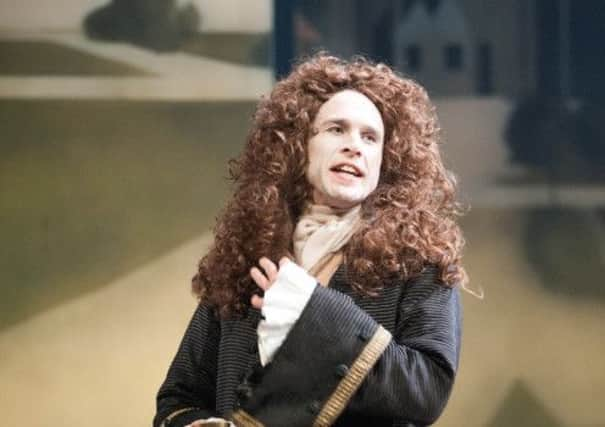Theatre review: The Libertine


Instead, the 17th century courtier has gone down in history for his extra-curricular activities, enjoying excess to the extent that he died from venereal disease at the age of just 33.
He certainly packed a huge amount into his short life though - much of which ‘The Libertine’ similarly packs into its three hour running time.
Advertisement
Hide AdAdvertisement
Hide AdDirector Dominic Hill’s splendid production begins with the ultimate antihero addressing the audience directly. He warns that he is not a likeable character, before practically seducing the first 10 rows of the stalls by his sheer magnetism. It’s a prologue which paves the way for what is to come, with even the most debased behaviour given a veneer of attraction by Rochester’s wit and charisma.
This balancing act is equally down to the remarkable Rochester (a quick glance at the history books reveals that even the most lurid interludes are based on fact) and the extraordinary actor who plays him. It’s impossible to drag your eyes away from Martin Hutson in the lead role, even as his body crumbles under the weight of the character’s multiple addictions.
Although the costume is period, there’s an obvious modernity to a character who can be seen as a precursor to modern celebrity. There’s elements of everybody from Richard Burton to Russell Brand in Hutson’s multi-layered ‘tortured artist’ charactarisation.
The plot itself comprises the overlapping relations between Rochester, his friends, his wife, King Charles II, his mistress Elizabeth Barry and a variety of prostitutes and hangers-on (all played by a uniformly exemplary supporting cast).
Advertisement
Hide AdAdvertisement
Hide AdThe word ‘bawdy’ could have been coined especially for this production - a particularly prurient musical number which opens the second half being a case in point - but there’s much more than filth on offer. Within the whirlwind of the Earl’s life there’s room for ruminations on power, sexual politics, fame and the nature of art itself. It’s certainly no morality tale; indeed the winners and losers seem to be arrived upon more by fate and genetics than any kind of self-determination.
“I must not be ignored”, demands Rochester at one point. With this production, that’s certainly not likely to be a problem.